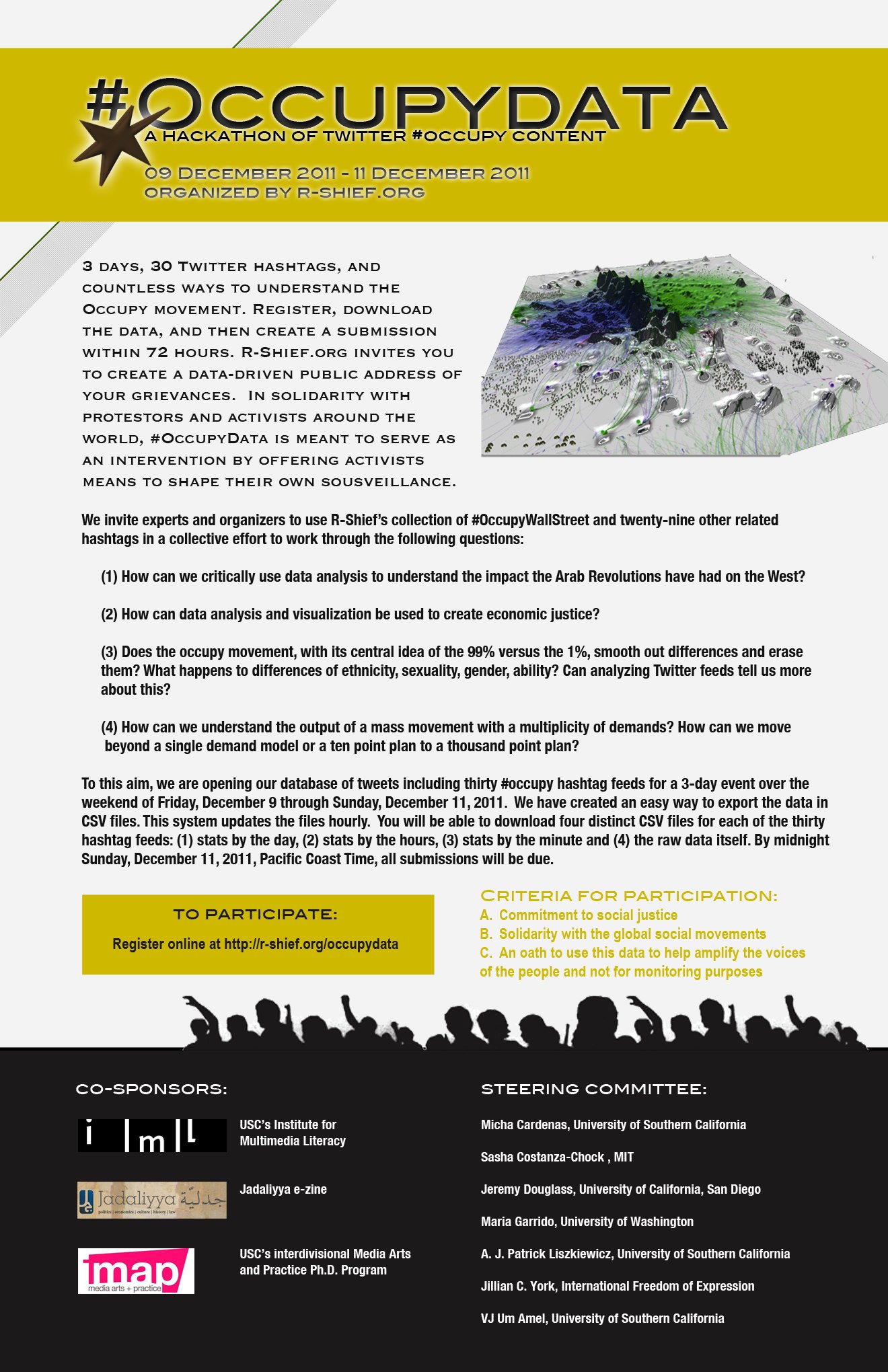LOS ANGELES, October 26, 2011- 3 Days, 30 Twitter hashtags, and countless ways to understand the occupy movement. From 09 December 2011 to 11 December 2011, R-Shief, a lab that collects and analyzes Middle East content from the Internet, will hold its first hackathon with satellite locations throughout the world. The aim of this event is to give activists data collected from Twitter, as well as R-Shief’s machine learning analytics, in a collective effort to offer a public and shared repository for data and visualizations about the Occupy Movements.
In solidarity with protestors around the world, #OccupyData is meant to serve as an intervention by offering experts and activists means to work together and think critically about the movement, its messages, and goals. Register and receive open access to export four CSV files for each hashtag -- (1) stats by day, (2) stats by hour (3) stats by minute and the (4) raw data itself. (These files are automatically updated hourly). We encourage all participants to post links or images of the work that comes out of this to R-Shief’s blog رشيف | Blog or Visualize It section رشيف | Data Visualizations. Reports from this event will also be featured in Jadaliyya.
Register @ R-Shief | #OccupyData
Live graphs @ R-Shief Twitterminer
WHAT: #OccupyData: a hackathon of Twitter #occupy tags
WHEN: December 9, 2011 to December 11, 2011, 12 a.m. PST.
HOSTED BY: R-Shief.org
CO-SPONSORS:
- Jadaliyya e-zine
- USC`s Institute for Multimedia and Literacy
- USC’s Interdivisional Media Arts and Practice Ph.D. Program
STEERING COMMITTEE: Micha Cardenas, Sasha Costanza-Chock, Jeremy Douglass, Maria Garrido, A. J. Patrick Liszkiewicz, VJ Um Amel, and Jillian C. York
CONTACT:
- Register online at R-Shief | #OccupyData Hack-a-thon
- Ms. Zoe Weintraub at zoe@r-shief.org
